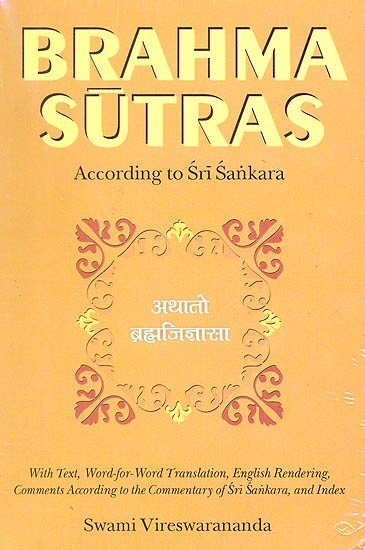Brahma Sutras (Shankara Bhashya)
by Swami Vireshwarananda | 1936 | 124,571 words | ISBN-10: 8175050063
This is the English translation of the Brahma-sutras including the commentary (Bhashya) of Shankara. The Brahma-sutra (or, Vedanta-sutra) is one of the three canonical texts of the Vedanta school of Hindu philosophy and represents an early exposition the Vedantic interpretation of the Upanishads. This edition has the original Sanskrit text, the r...
Chapter III, Section IV, Adhikarana XV
Adhikarana summary: Childlike state means the state of innocence, being free from anger, passion, etc.
Sutra 3,4.50
अनाविष्कुर्वन्, अन्वयात् ॥ ५० ॥
anāviṣkurvan, anvayāt || 50 ||
anāviṣkurvan—Without manifesting himself; anvayāt—on account of the context.
50. (The childlike state means) without manifesting himself, on account of the context.
In the passage of the Brihadaranyaka quoted in Sutra 47, the childlike state is enjoined on an aspirant after Knowledge. The question is what is exactly meant by this? Does it mean to be like a child without any idea of purity and impurity and doing whatever one likes, or does it mean to be guileless and without the sense of egoism as a child? The Sutra says it is the latter and not the former, because that is detrimental to Knowledge. It means one has not to manifest or give vent to any of the passions and has to be guileless and without the sense of egoism. It refers to the innate innocence of a child. Such a meaning alone is appropriate to the context, purity and innocence being helpful to Knowledge.
